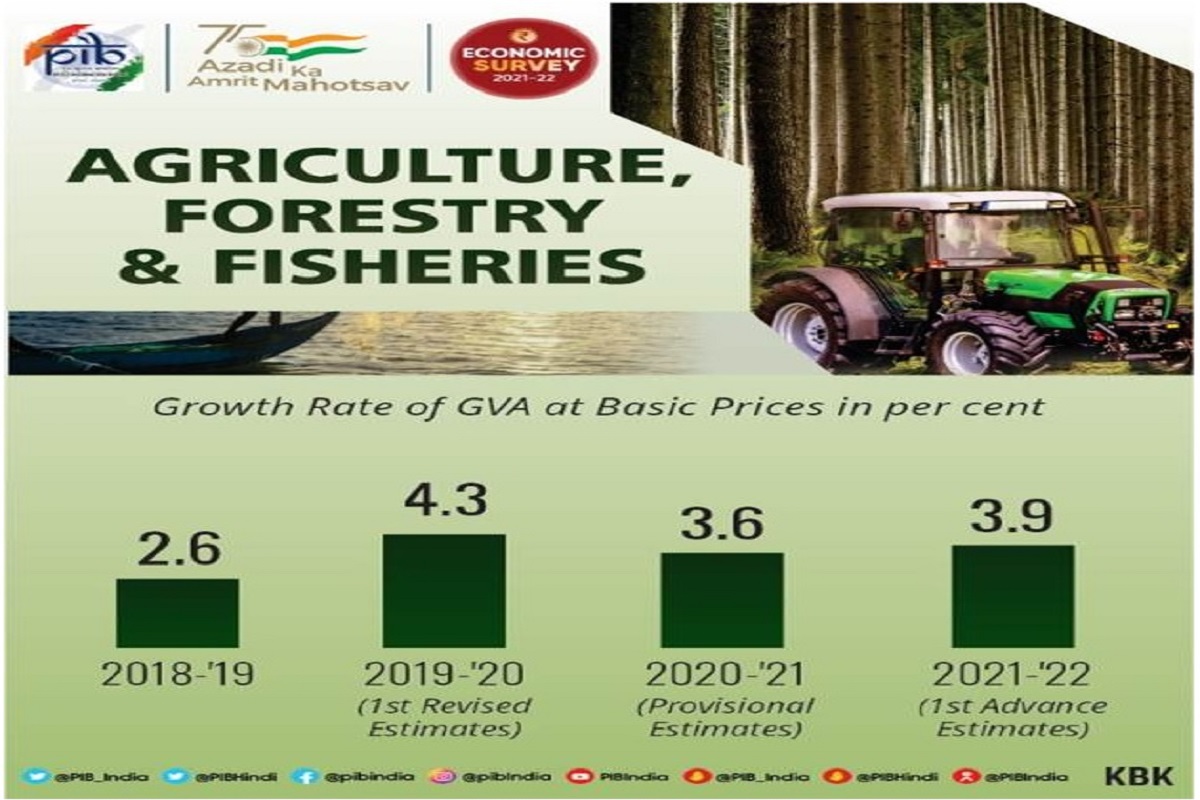PM Modi to release 19th instalment of PM-KISAN scheme at Bhagalpur, Bihar on Feb 24
Prime Minister Narendra Modi will release the 19th instalment of the PM-KISAN scheme at Bhagalpur, Bihar on Monday.
The share of the agriculture and allied sector in total Gross Value Addition (GVA) of the economy has settled at around 18 per cent in the long term. “In the year 2021-22 it is 18.8 per cent and in the year 2020-21 it was 20.2 per cent,” the survey stated.

Photo: SNS
Despite the Covid-19 pandemic, the Agriculture sector in India has experienced buoyant growth in the past two years registering 3.5 % and 3.9% during the fiscal year 2020-2021 and 2021-2022 respectively, revealed the Economic Survey released here on Monday.
The Survey attributes this to “good monsoon, various Government measures to enhance credit availability, improve investments, create market facility, promote infrastructure development and increased provision of quality inputs to the sector”. It also observes that livestock and fisheries have experienced buoyant growth and have helped the sector perform well.
Advertisement
The share of the agriculture and allied sector in total Gross Value Addition (GVA) of the economy has settled at around 18 per cent in the long term. “In the year 2021-22 it is 18.8 per cent and in the year 2020-21 it was 20.2 percent,” the Survey stated.
Advertisement
Interestingly the allied sectors have performed better than the crop sector during this period, which indicated that the future growth in the Agriculture sector would come from the Allied sectors, which include livestock, forestry, fishing, and aquaculture.
The survey notes that there is a direct correlation between capital investments in agriculture and its growth rate. The Gross Capital Formation in the agricultural sector relative to the GVA in the sector is showing a fluctuating trend in sync with the variation in private sector investments, whereas the public sector investments have remained stable at 2-3 percent over the years.
The survey further suggested that the higher access to institutional credit to farmers and greater participation of the private corporate sector might improve private sector investment in agriculture, the Ministry said. Survey also points out that the production of rice, wheat and coarse cereals had increased at Compound Annual Growth Rates (CAGR) of 2.7, 2.9 and 4.8 per cent respectively during the past five years. Similarly pulses, oilseeds and cotton during the same period registered a CAGR growth of 7.9, 6.1 and 2.8 percent respectively.
The survey also expressed its concern over the existing cropping pattern, which is skewed towards the cultivation of crops that need high water. “It has led to the depletion of fresh groundwater resources at alarming rates and resulted in extremely high water stress levels in the North-West region,” the Economic Survey warned.
The Survey pointed out that 60 percent of the net irrigated area in the country is serviced through groundwater. The rate of extraction of groundwater is very high (more than 100%) in the states of Delhi, Haryana, Punjab, and Rajasthan, the Survey stated.
Referring to the agriculture credit flow for the year 2020-21, the Economic Survey said the agricultural credit has been fixed at Rs. 16,50,000 crores.
Till September 20, last year, against this target a sum of Rs.7,36,589.05 crores has been disbursed. Under the Atma Nirbhar Bharat programme, the government has also announced Rs two lakh crore concessional credit boost to 2.5 crore farmers through Kisan Credit Cards (KCC). Towards this end, banks have issued KCCs to 2.70 crore eligible farmers as of January 17, 2022, the Survey said.
Advertisement